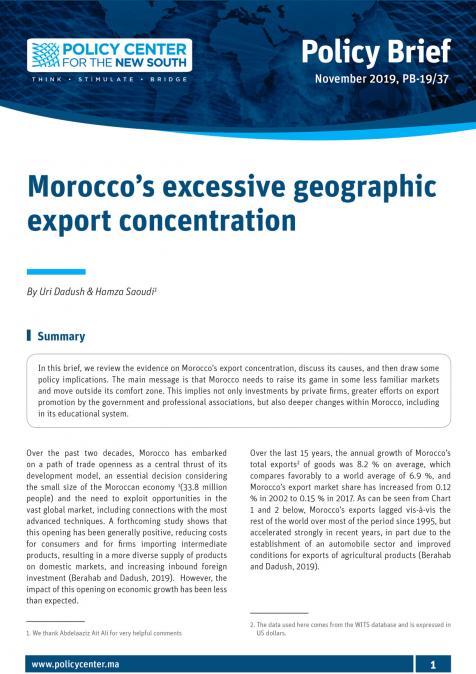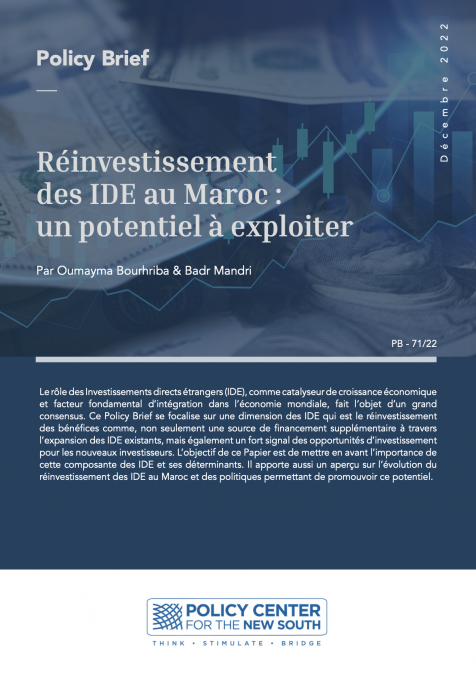Publications /
Policy Brief
In this brief, we review the evidence on Morocco’s export concentration, discuss its causes, and then draw some policy implications. The main message is that Morocco needs to raise its game in some less familiar markets and move outside its comfort zone. This implies not only investments by private firms, greater efforts on export promotion by the government and professional associations, but also deeper changes within Morocco, including in its educational system.
Over the past two decades, Morocco has embarked on a path of trade openness as a central thrust of its development model, an essential decision considering the small size of the Moroccan economy 1(33.8 million people) and the need to exploit opportunities in the vast global market, including connections with the most advanced techniques. A forthcoming study shows that this opening has been generally positive, reducing costs for consumers and for firms importing intermediate products, resulting in a more diverse supply of products on domestic markets, and increasing inbound foreign investment (Berahab and Dadush, 2019). However, the impact of this opening on economic growth has been less than expected.












